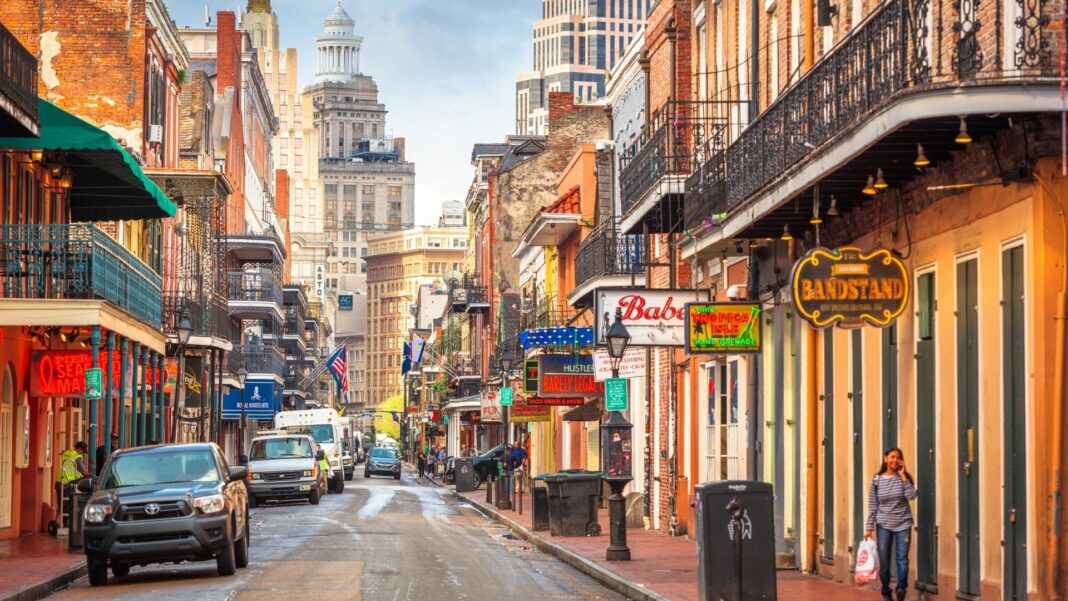
If you’ve decided to move to New Orleans, you may have a few questions. This feel-good city offers more than just Mardi Gras. You’ll find rich culture, plenty of things to do, plus easy access to eateries, entertainment, and public transportation. Since Hurricane Katrina, the area has made a powerful comeback and draws new residents from all over the U.S. If you’re considering a move to the Big Easy, here’s a guide to help you better understand the cost of living in New Orleans.
Cost of living in New Orleans
The cost of living in New Orleans is 4% lower than the national average. As you determine your cost of living expenses, here are some costs to consider:
- Housing costs
- Utility costs
- Transportation costs
- Daily living expenses
- Job market and salary
- Cost of living comparison
How expensive is an apartment in New Orleans?
There are 13 housing districts in the New Orleans, with 72 neighborhoods. With older, historic neighborhoods such as the French Quarter to newer areas like Metairie, there are several areas where you could consider finding an apartment. New Orleans is currently ranked 31 on our list of the average rent prices in 100 cities. The median cost of rent for a 1-bedroom apartment in the city is $1,430 and the average cost of a 2-bedroom apartment in New Orleans is currently $1,880. This price will fluctuate based on rooms, whether or not utilities are included, and the neighborhood.
New Orleans neighborhoods to consider
- French Quarter
- Garden District
- City Park
- Uptown
- Mid-City
- Central Business District
- Lakeview
- Seventh Ward
How do I find affordable apartments in New Orleans?
The best way to find a cheap apartment in New Orleans is to do your research. First, you will need to put together a list of wants, including things such as whether or not you want outdoor space, the area you desire and proximity to the downtown area, and how many bedrooms and bathrooms you want. If you want to bring your beloved pet with you, you’ll also need to consider the deposit and monthly costs associated with that per your new rental agreement. To get an idea of what rent you can afford, take advantage of tools like a rent calculator to help you determine the best price range for your New Orleans apartment search.
Cost of utilities in New Orleans
In addition to your apartment rent or housing payment, you’ll also need to consider what your monthly utilities will cost you. Internet services with an average of around 8 Mbps will cost you about $80 per month. Basic utilities such as heating, gas, and electricity will run you about $207 per month on average for a 915 square foot space. These figures will fluctuate based on the time of year, the size of the space, and the number of people living in the home.
Transportation costs in New Orleans

You’ll have a few options for getting around the city when living in New Orleans. The most historic option is the New Orleans Streetcar. There are four main lines of the Streetcar route that travel through popular neighborhoods within the city. The New Orleans Regional Transit Authority (NORTA) operates both the streetcar and the 34 bus RTA bus lines. One-way standard fares will cost $1.25. You’ll also have the option to purchase a one-day Jazzy Pass for $3.00 that will allow for unlimited trips. Car insurance rates in Louisiana are quite high. If you plan on driving you can expect to pay around $4,000 annually for your car full coverage insurance premium. Gas prices in New Orleans are currently $4.00, but will fluctuate throughout the year.
Daily living expenses
Moving means you should factor in all of your living expenses, including daily living expenses and extras you may wish to enjoy. A basic dinner for two at a New Orleans restaurant will run you about $20, while a three-course meal may cost an average of about $70 for two people. Gym memberships will cost you around $75 per month. New Orleans grocery prices are approximately 3% lower than the national average.
Job market and average salary in New Orleans
The average salary in New Orleans is $61,000. The current minimum wage in the state of Louisiana is $7.25/hr. New Orleans has a diverse economy with many job markets, the top including manufacturing, healthcare, and tourism. Living in NOLA means having access to many jobs within the hospitality and tourism industry, after all New Orleans is one of the top tourism destinations, especially around Mardi Gras.
New Orleans cost-of-living comparison
If moving to New Orleans from out of state, it’s important to compare cost-of-living expenses. Compared to New York City, rent prices in New Orleans are 57% lower. Compared to Los Angeles, the cost of living in New Orleans is 28% cheaper. Overall, living in New Orleans is a wise choice financially. You’ll be able to experience the best that city life has to offer without paying extra for it.
Living in New Orleans

This lively city offers a culture of its own, with Creole cuisine, jazz music, and an experience that changes seasonal visitors to full-time residents. Homes and apartments in New Orleans are quite charming, and with several excellent neighborhoods, you can see which is right for you. If you want to head out for dinner with your partner or family, you can choose from close to 1,400 restaurants. The cuisine here is known around the world. Often this great food goes hand in hand with live music.
The city also hosts the largest Mardi Gras celebration in the U.S. And contrary to what you may think, the city is full of green spaces. Luckily for its residents, the average cost of living in New Orleans is about 4% lower than the national average.
Things to consider before your move
Before making the big move to New Orleans, here are a few things you need to consider as well as a few fun facts about the city itself:
- Mardi Gras isn’t just one day to celebrate. If you’ve ever heard of New Orleans, you’ve probably heard about Mardi Gras. Living here during the event will bring it a whole new meaning.
- Personal property taxes are lower compared to the national average, so your landlord won’t need to charge an exorbitant rent.
- Walking and biking are common here and can help lower your transportation costs.
Whether you’re moving to New Orleans chasing the job of your dreams or for a change of scenery, you’re sure to find it in the Big Easy. Browse thousands of New Orleans apartments for rent on Zumper and get ready to make your move.



